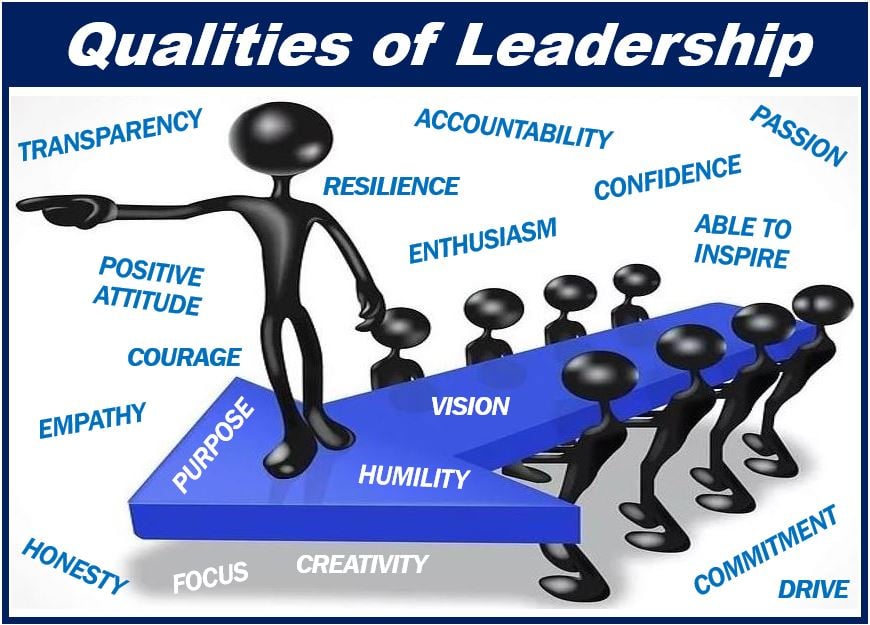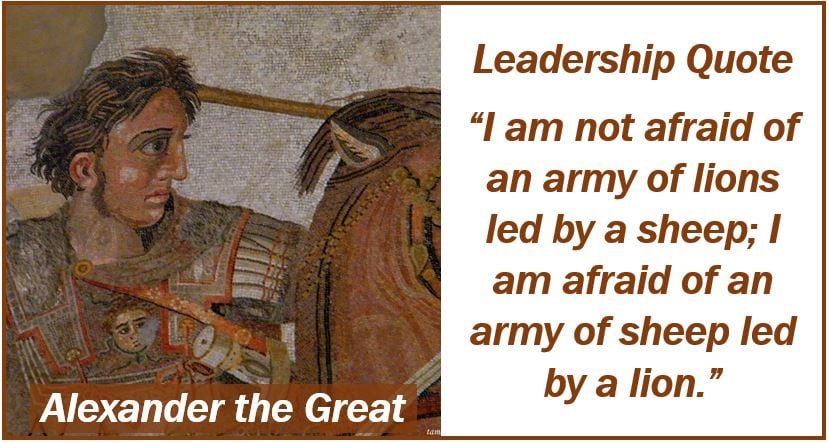The term ∫ˆ refers to the action of leading a company, organization, military unit, or group of people. It is also the position or state of being a leader. When we talk about, for example, a ‘change of leadership,’ we mean a change of people who lead an organization, business, country, etc.
When we hear the term ‘leadership,’ we may think of a head of state, CEO, or explorer heading a group through the jungle. CEO stands for Chief Executive Officer.
Cambridge Advanced Learner’s Dictionary & Thesaurus defines leadership as “the set of characteristics that make a good leader,” and “the position or fact of being the leader”.
According to Wikipedia, leadership is both a practical skill and a research area which encompasses a person’s, country’s, or organization’s ability to lead or guide others.
The term ‘leadership’ may mean different things to different people, countries, parts of the world, companies, and cultures.

Leadership in business
In the world of business, leadership provides companies and workers with direction. Stakeholders, especially employees, need to know where their company is heading and how it plans to get there, i.e., what its goals and objectives are.
What are goals and objectives?
Your goal is where you want your company to be in five or ten years’ time. Your objective is how you plan to get there. If we use an analogy, such as traveling, your goal is your destination, while your objective is a description of the journey (the route).
If you say that you want your company to become the market leader in your country, that is your goal. Your objectives might be to acquire one of your smaller competitors, advertise in a certain way, employ more scientists, train some staff members in specific skills, etc.
In today’s fast-paced and interconnected world, effective leadership often involves embracing technological advancements and understanding the impact of globalization on organizational strategies and team dynamics.
Investopedia.com says leadership isn’t just about giving orders, but also about setting a positive example. Leaders inspire their teams by showing genuine enthusiasm for the work, a continual drive to learn new things, and a readiness to assist in both individual and team tasks

What sets leaders apart?
Leaders are willing to take responsibility for their decisions, especially if they subsequently affect people’s welfare.
Military generals, parents, heads of states, and CEOs all have one thing in common. They make decisions that affect not only themselves, but also others.
Such questions as: “Should we invade now?” or “Where should I send my daughter to school?” affect other individuals. When a CEO decides to reduce the workforce of a large multinational, that decision affects the lives of thousands of people plus their families.
Some decisions may affect just one or two people, while other may determine what happens to a whole nation.
Leadership and responsibility aversion
If you are reluctant to make decisions that can determine the fate of others, you are unlikely to enjoy leadership. If you refuse to make such decisions, you probably lack strong leadership skills.
Good and effective leaders are willing to take responsibility, i.e., to be held accountable, for the decisions they make.
